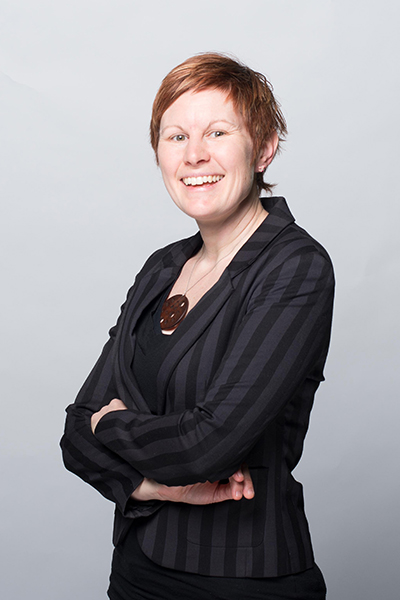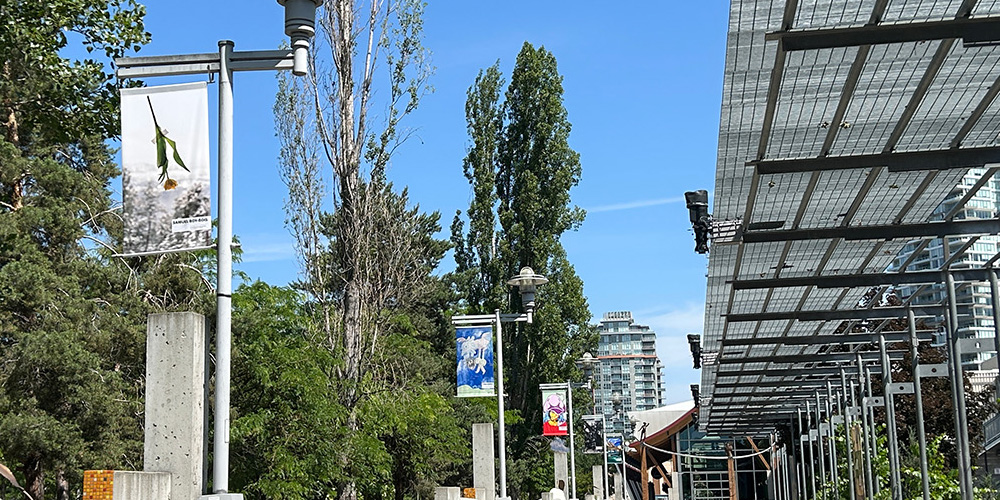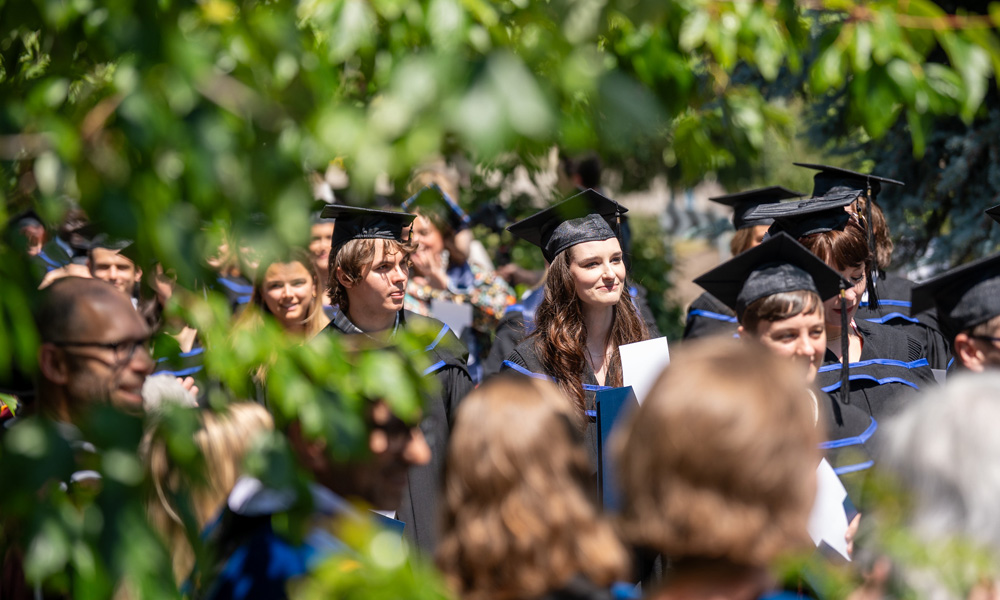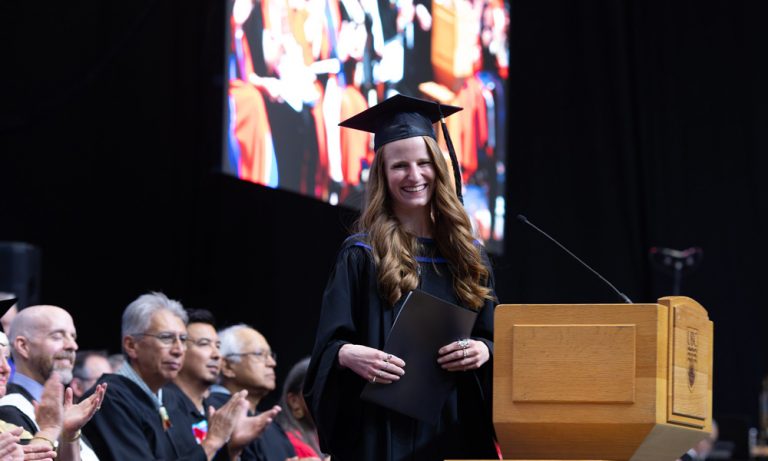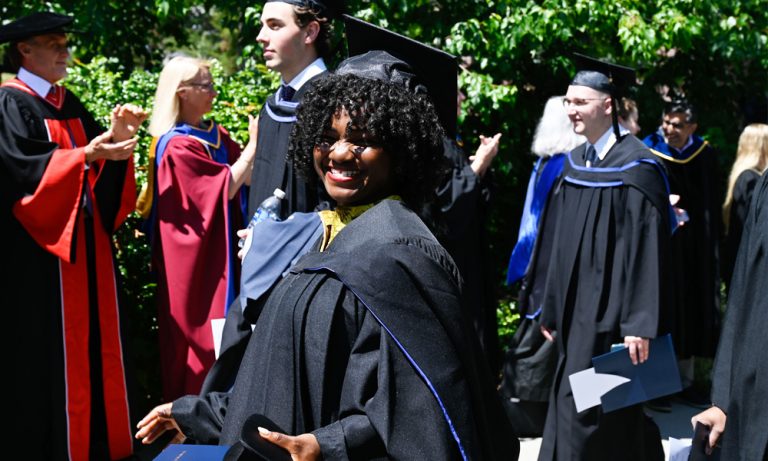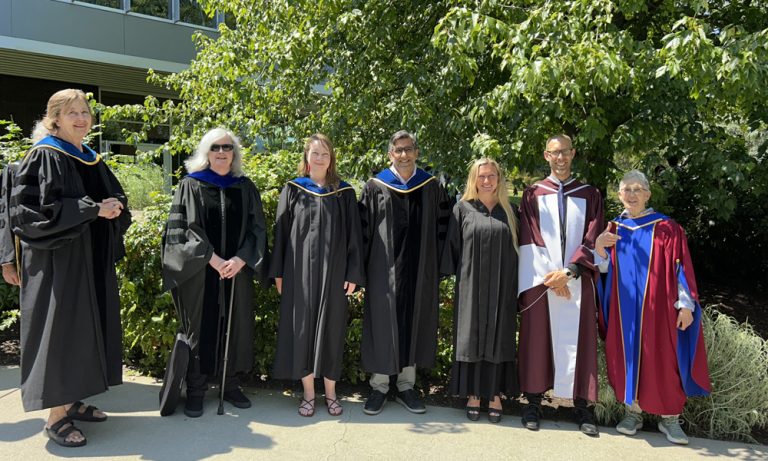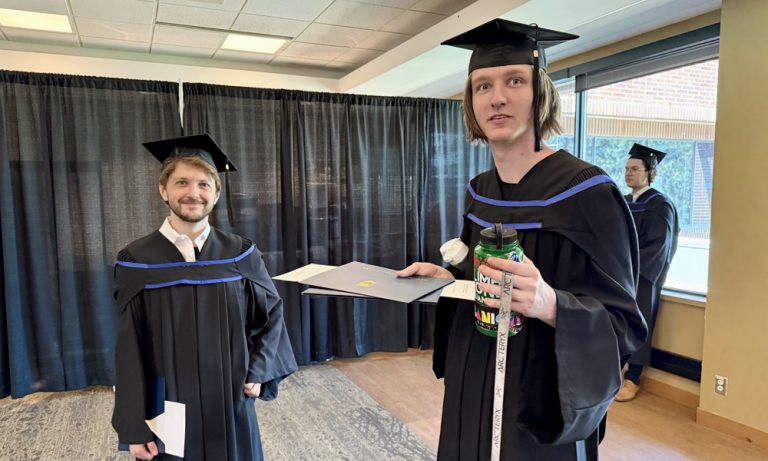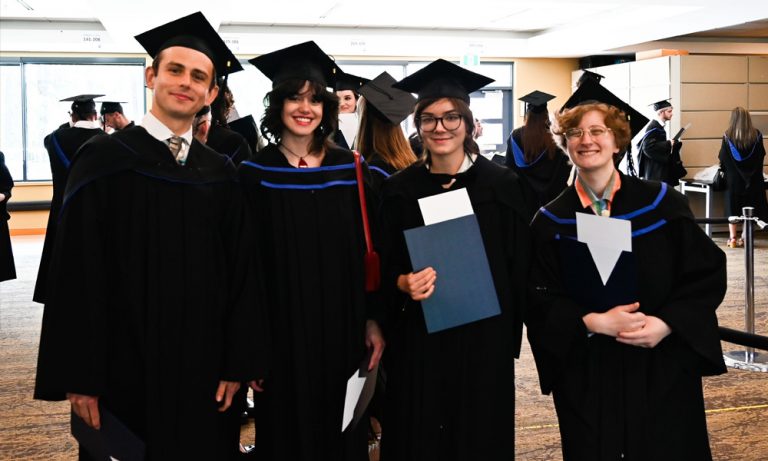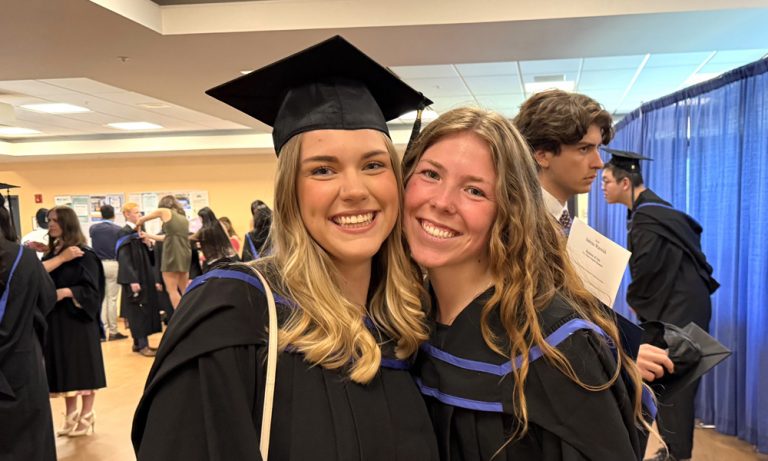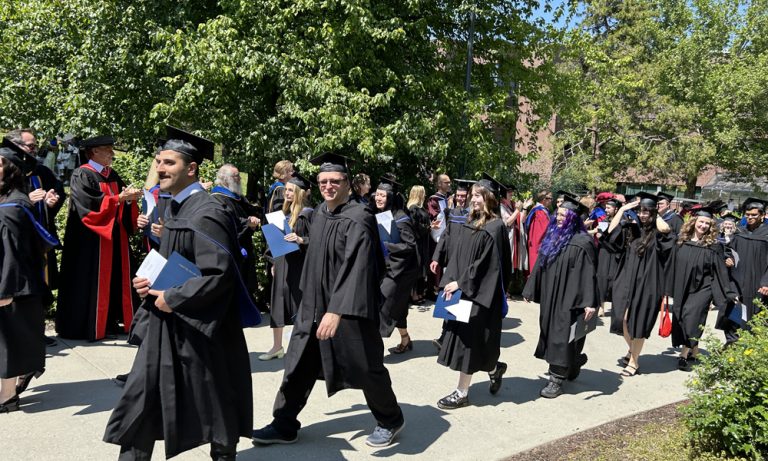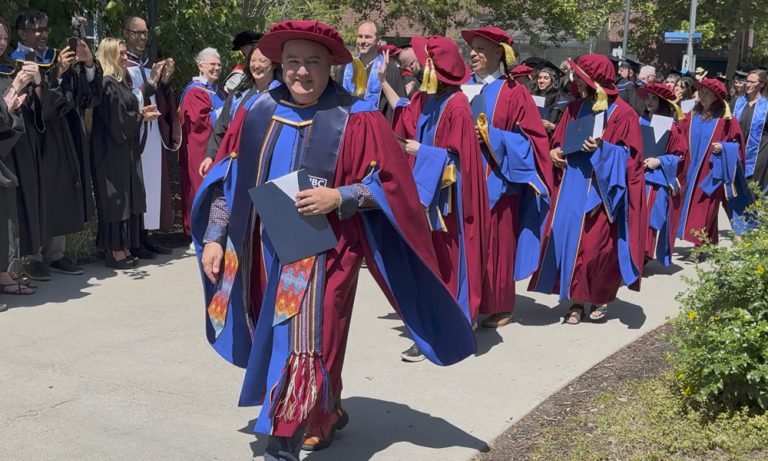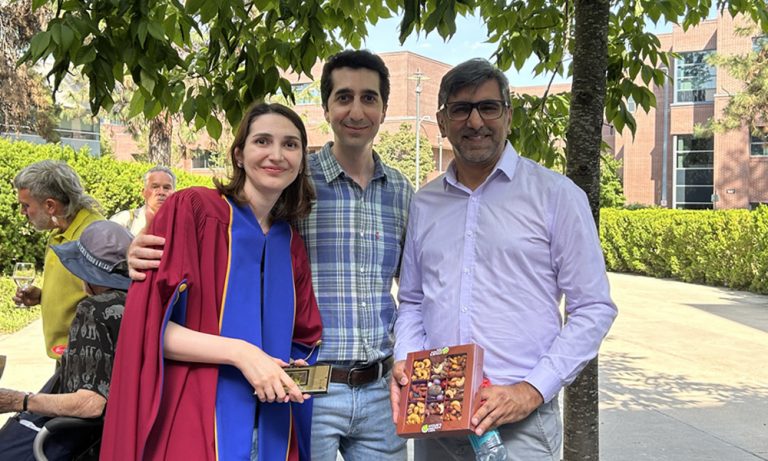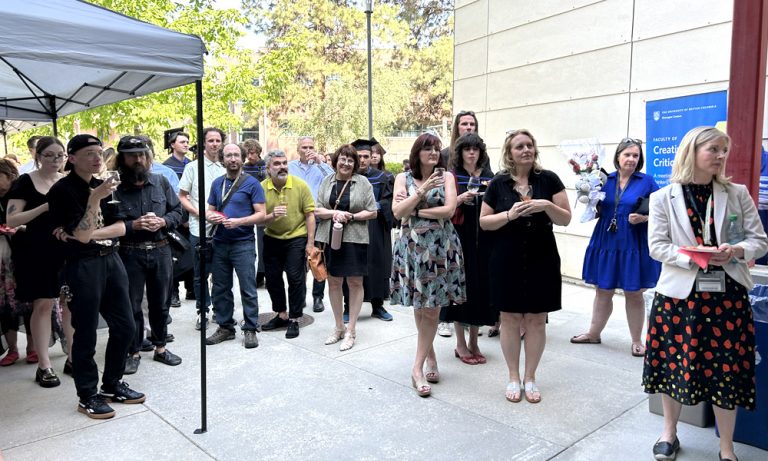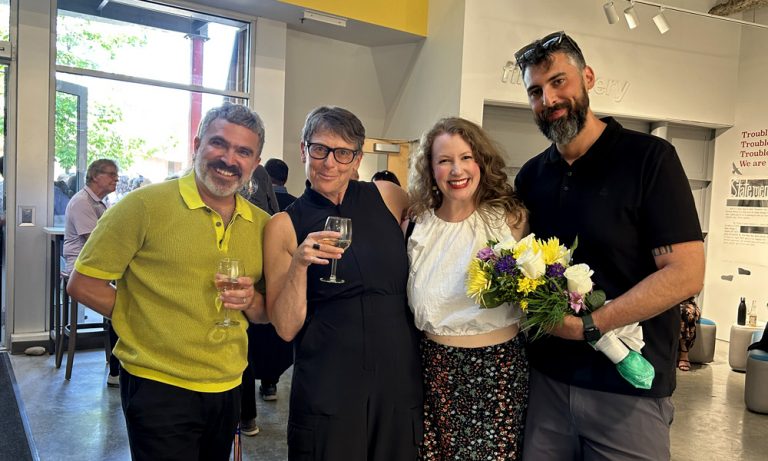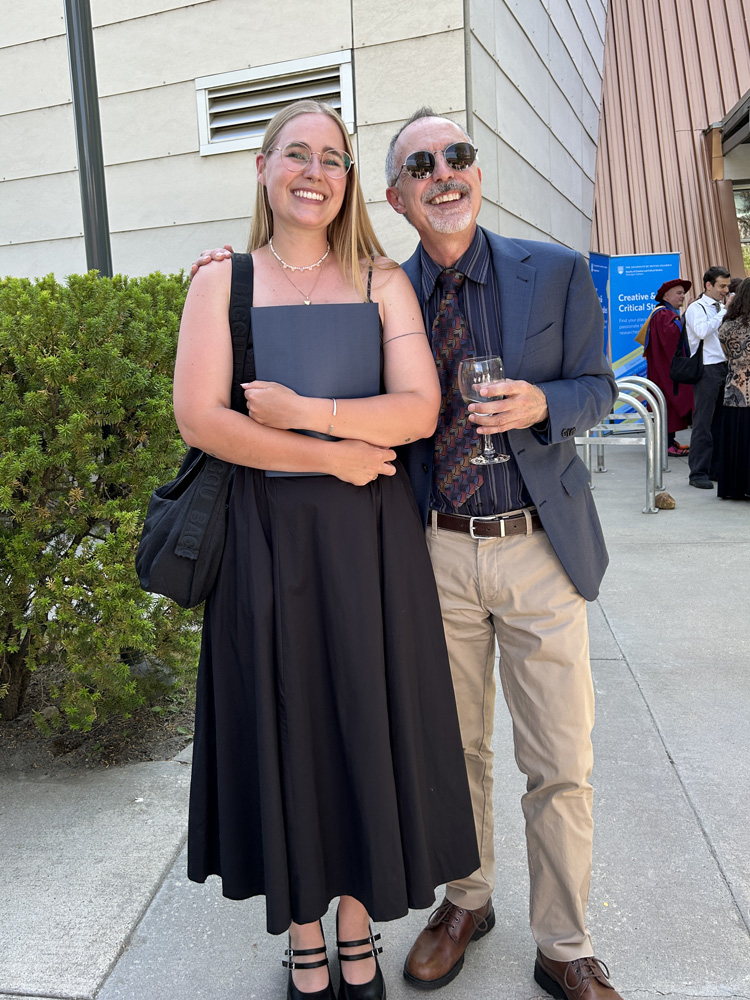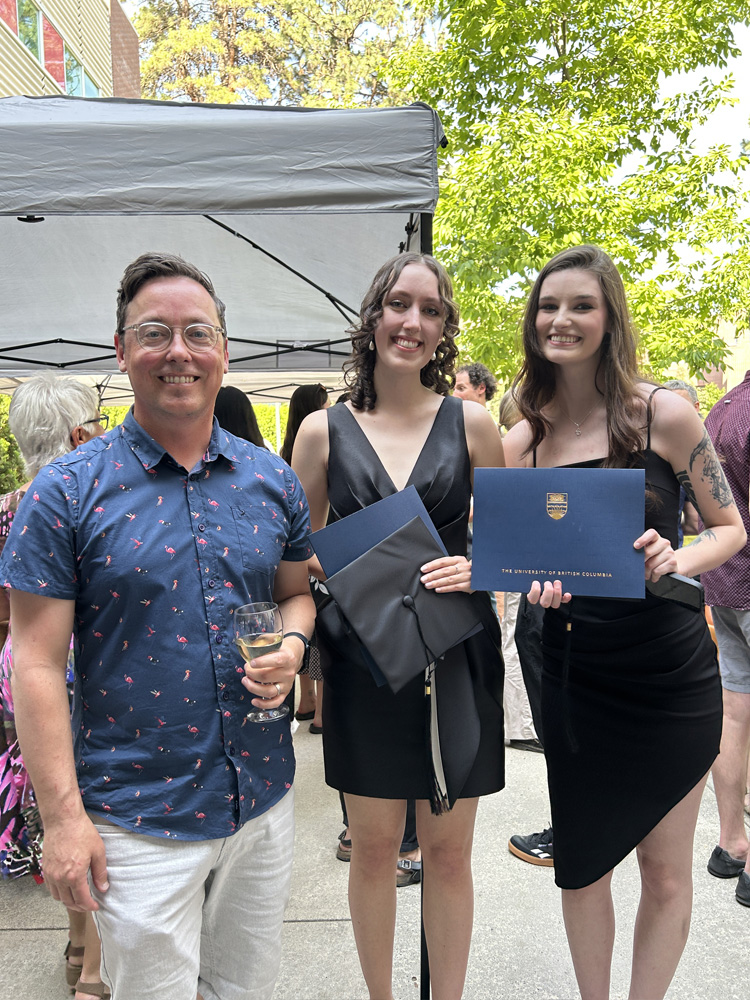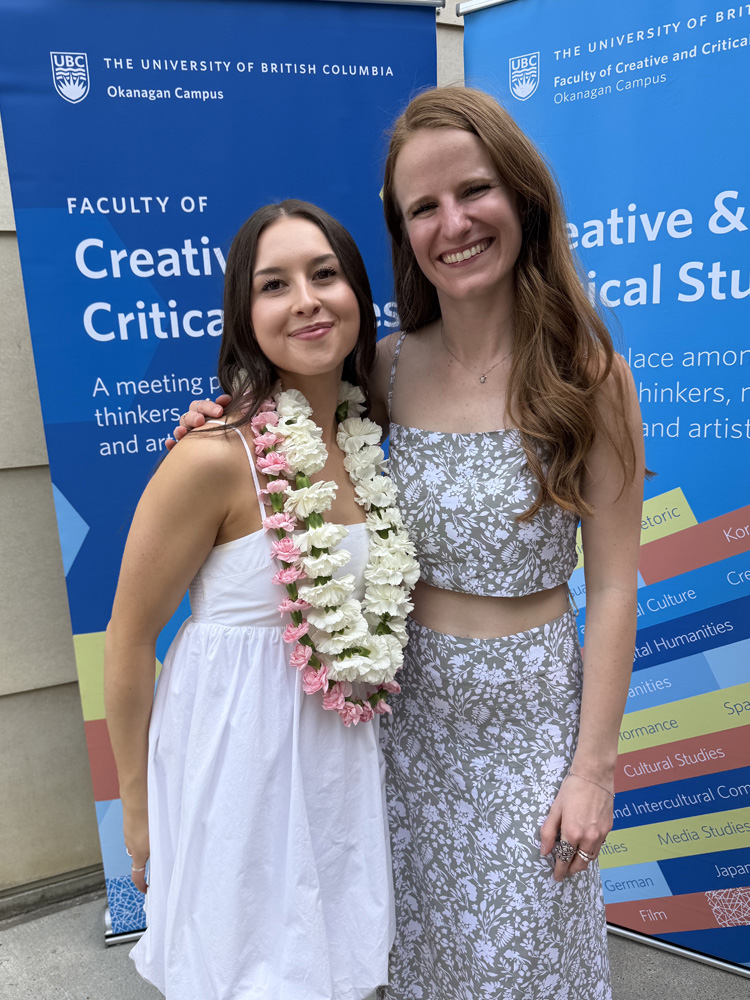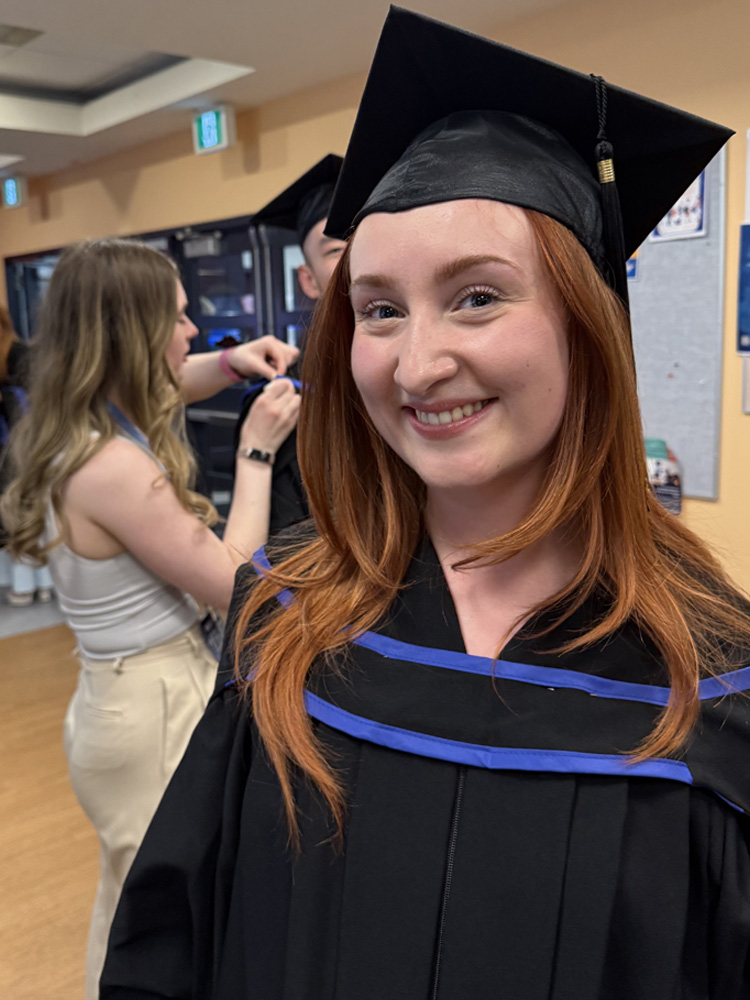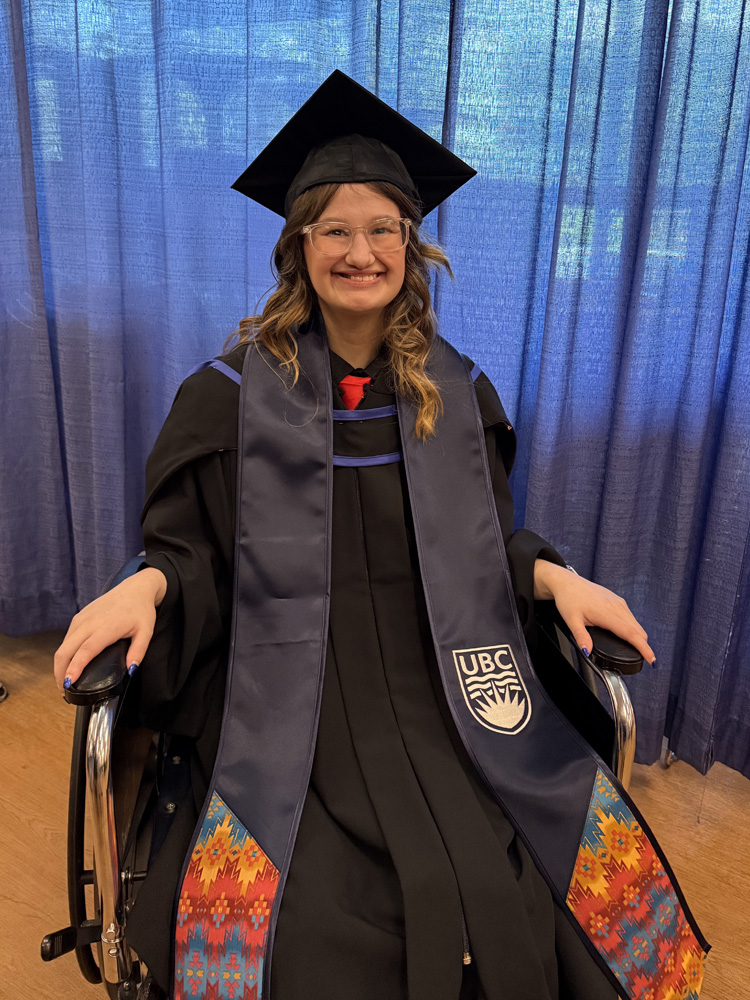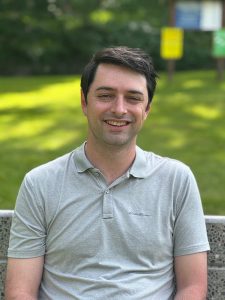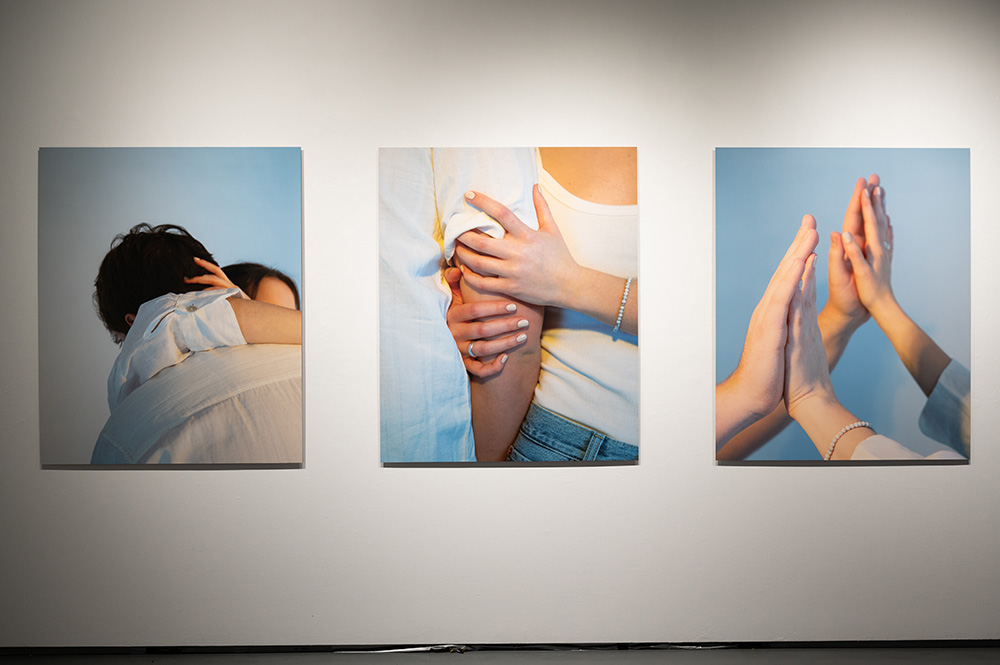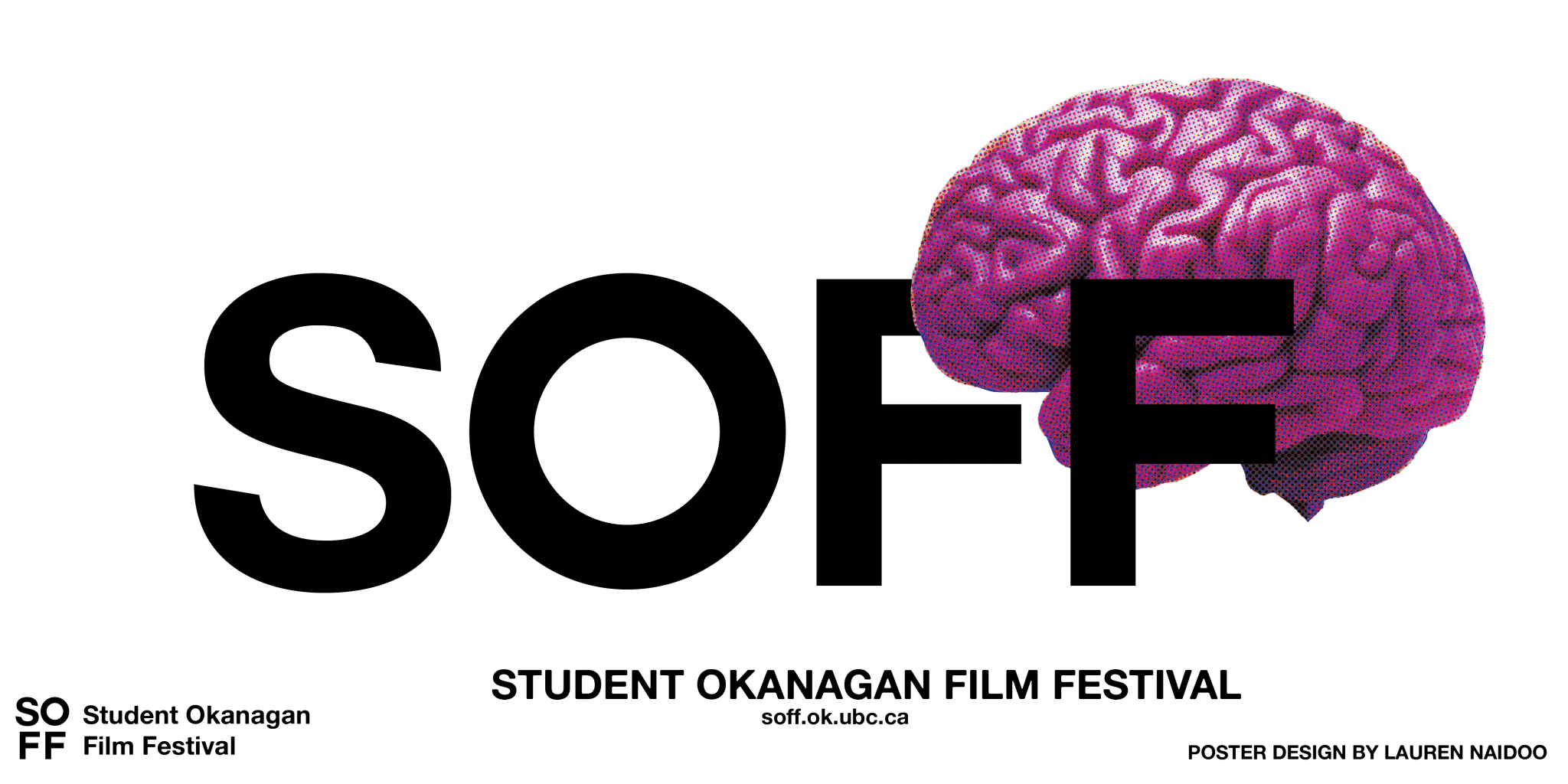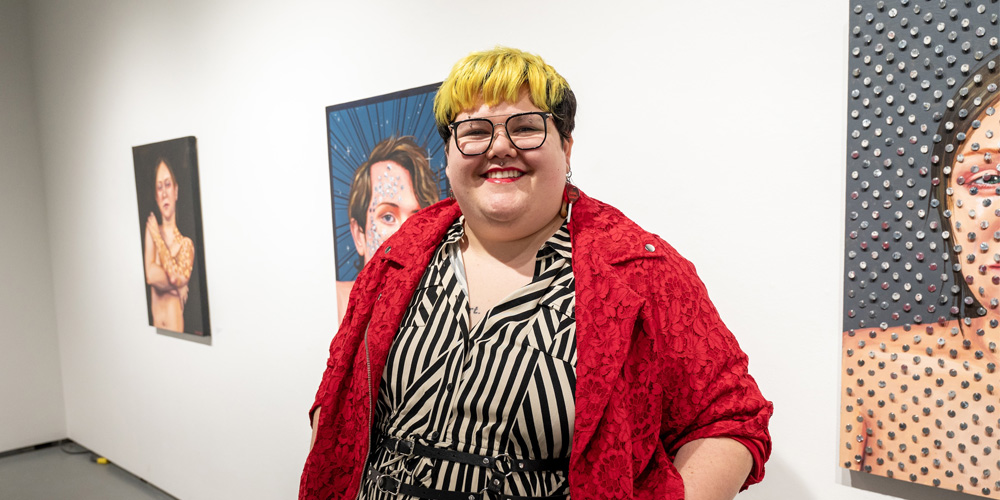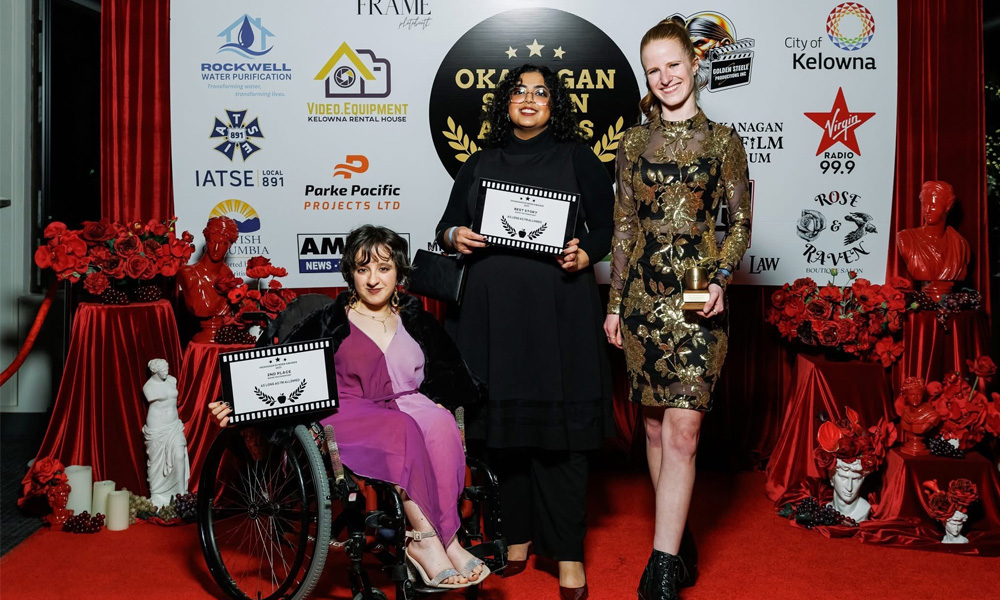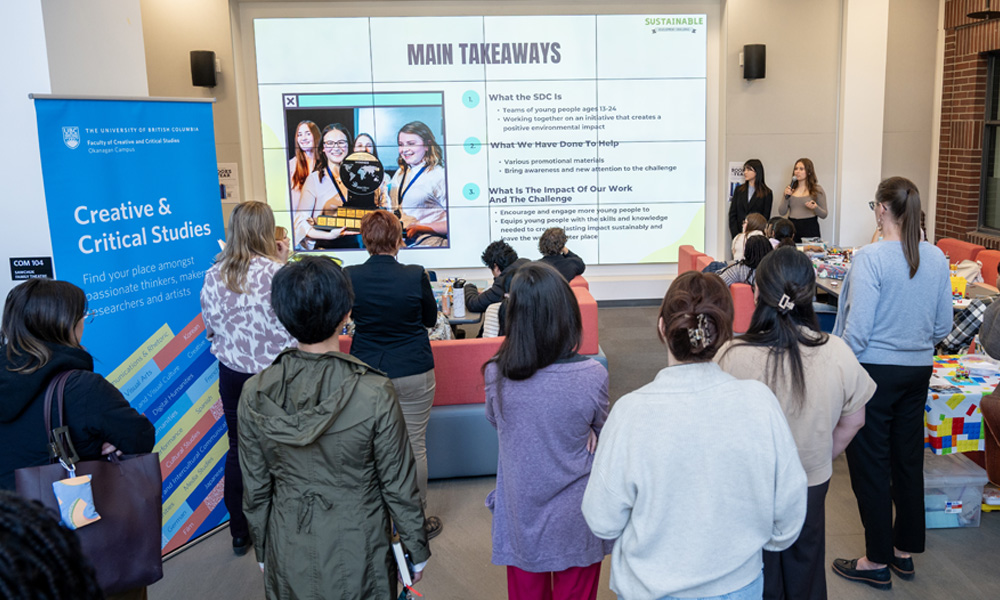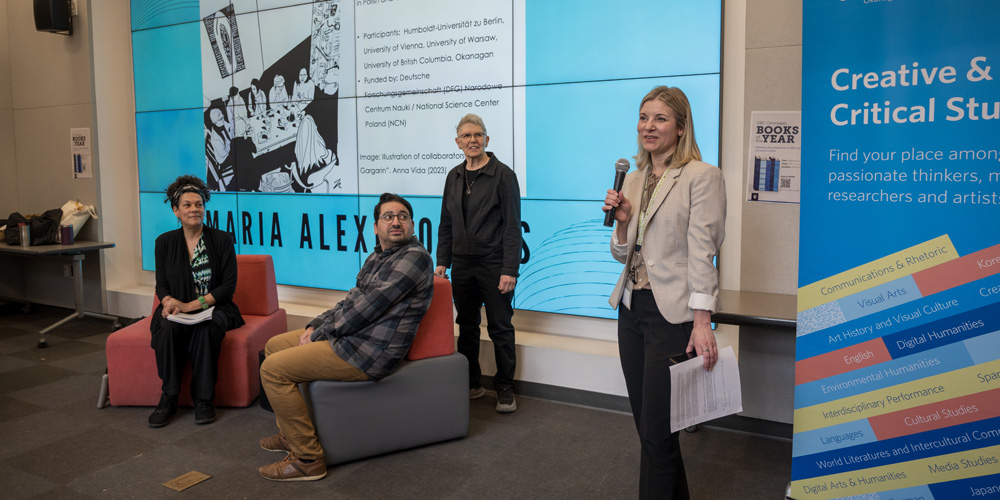
Dr. Jordan Stouck introducing the ECS Research Exchange
The Department of English and Cultural Studies (ECS) held a public event on April 2, 2025 showcasing recent faculty research. Faculty members were interviewed by colleagues and grad students about their recent projects and publications
The event showcased the department of English and Cultural Studies’ commitment to understanding historical and cross-cultural literacies as well as analyzing power relations in society. Humanities research is diverse and relevant to other disciplines, addressing equity, sustainability, and ethical issues vital to our time. A public research event such as this encourages wider dialogue on our campus as well as celebrating our faculty and graduate students’ accomplishments.
“For the last five years, ECS has had an internal annual research celebration, but this year we wanted to go public and share recent faculty publications and research projects with the wider UBCO community,” says Jordan Stouck, ECS department head.
The format of the event was interview style so that attendees could hear faculty members talk about their work in a very direct way.
“I’ve attended many conferences where the best, most compelling points were made in the question and answer periods, so we wanted to create that context for communicating directly to a diverse audience. It also allowed more scholars to share a taste of their work, with follow up questions and discussion always welcome.”
Included in the exchange were: Anita Girvan and Ali Yazdizadeh on E-race-sures & Reclamations Digital Map; Anita Chaudhuri and Eve Kasprzycka on Linguistic Equity; Maria Alexopoulos and Jessica Beaudin on Queer Theory in Transnational Contexts; Michael Treschow and Robert Eggleston on Paratext and Codicology in Old English; Astrida Neimanis and Julia Jung on Interdisciplinary Collaboration on Ocean Arts & Sciences; Sean Lawrence and Jessica Beaudin on Peace in Shakespeare.
Masters of Arts in English and English Honours students were also invited to share their research after the faculty portion of the event, with the recognition that research mentorship is important, and a great way to build capacity for excellence as scholars begin their careers.
“It was wonderful to hear from 2 M.A. and 4 Honours students on their projects and plans for future research. Many thanks to English Course Union president, Lindsay Baerg, for organizing this component,” says Stouck.
This public forum has not been available for Honours students before, but it is something the department would like to do every year, so faculty and other students can hear about the student projects and so the Honours students have that experience of presenting their work. The students who presented were: Maggie Wileman, Aditri Chatterjee, Lindsay Baerg, Maren Mcintosh, Mckenna King, and Matthew Holdt.
Below are photos from the event showing the researchers and students.
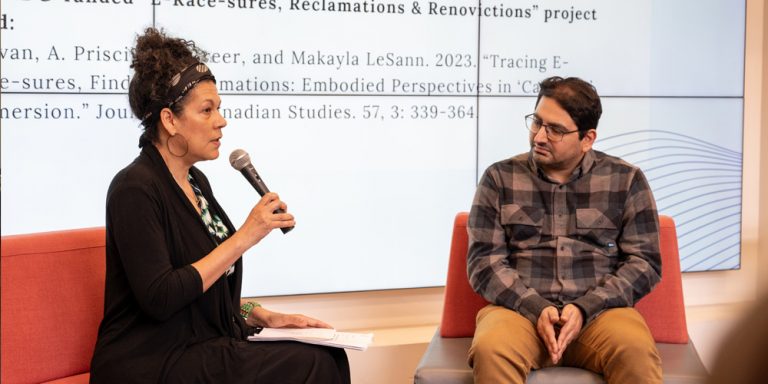
Dr. Anita Girvan and DAHU PhD student Ali Yazdizadeh
Dr. Anita Girvan is an Assistant Professor, and her research interests include: Cultural Studies; Environmental Humanities; Political Ecology and Environmental Justice; Black and Indigenous Feminist Ecological Thought; Stories, Metaphor; Critical Canadian Studies.
Ali Yazdizadeh is a PhD student in the Digital Arts and Humanities theme in the IGS program, he explores the shifting dynamics of control, resistance, and recuperation within the context of the algorithmic media. It is an exploration of the possibility of users’ agency within the coded enclosures of algorithmic sovereignty.
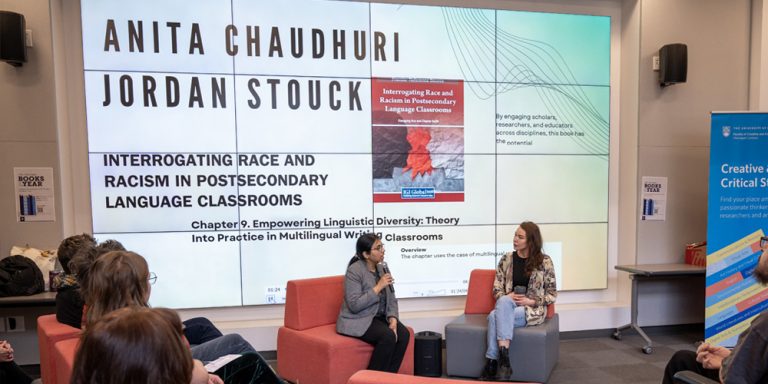
Anita Chaudhuri and PhD student Eve Kasprzycka
Anita Chaudhuri is an Associate Professor of Teaching at the Department of English and Cultural Studies. Anita is interested in identity construction of student writers and their communication styles. She is involved in projects and committee work on equity, diversity, and inclusion (EDI), educative approaches to academic integrity, and open education at UBC.
Eve Kasprzycka is a doctoral candidate in IGS and a sessional instructor in FCCS. Her research bridges theoretical and intersectional perspectives on violence, governance and animals which can be found in Animal Studies Journal, Building Abolition: Decarceration and Social Justice and Philosophia.
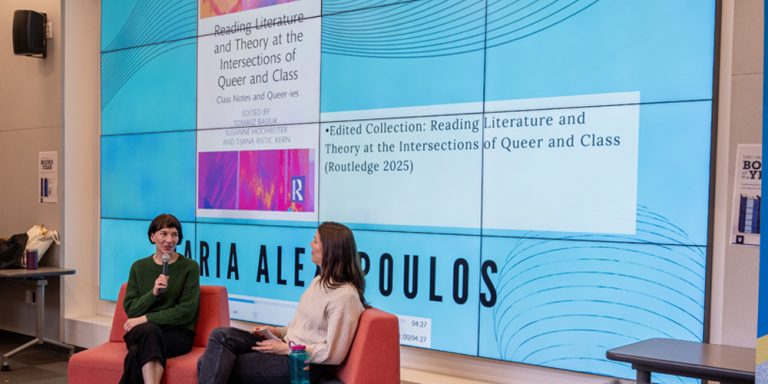
Maria Alexopoulos and MA English student Jessica Beaudin
Maria Alexopoulos is a Lecturer in English and Cultural Studies. Alongside her work presented during the event, her main research focus is the relationship between ‘mass hysteria’ and feminine adolescence.
Jessica Beaudin (pronouns she/her) is a graduate student in the MA English program working in the field of Critical Animal Studies; her thesis explores the ethical disjuncture at work in the practices of euthanasia, specifically in terms of differential logics accorded to the putting-to-death of both human and non-human animals.
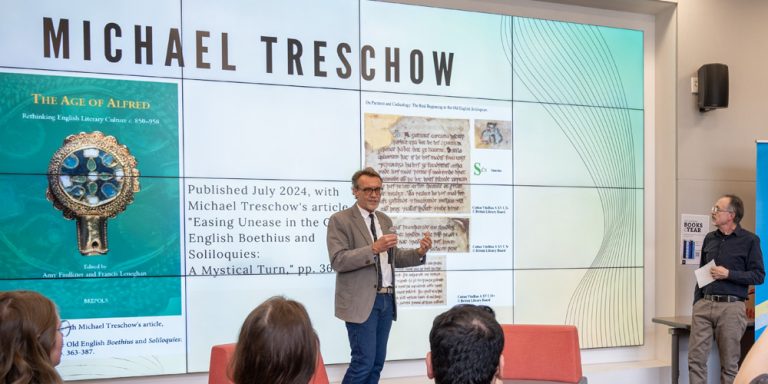
Dr. Michael Treschow and Dr. Robert Eggleston
Michael Treschow is an Associate Professor, whose research focusses mostly on Old English Literature. He has a PhD from the University of Toronto and the Centre for Medieval Studies and a Medieval Studies Licentiate from the Pontifical Institute of Medieval Studies. His most recent publication is a chapter in an edited volume called The Age of Alfred titled “Easing Unease in the Old English Soliloquies and Boethius.”
Robert Eggleston is the English Program Coordinator in the Department of English and Cultural Studies. His research focuses on late 17th-and 18th-century drama, and he teaches courses on the history of English literature and late 17th- and 18th-century English literature.
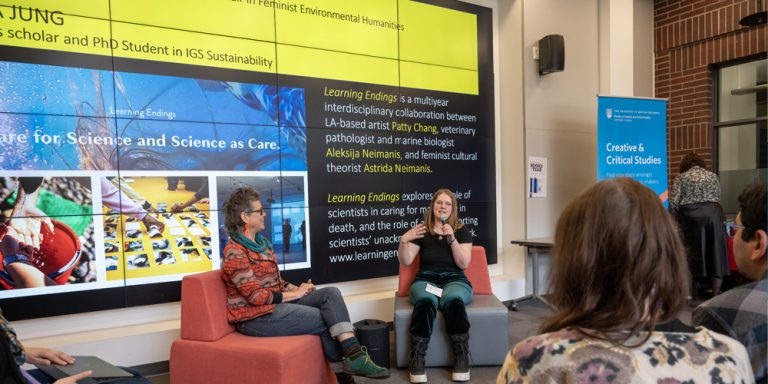
Dr. Astrida Neimanis and PhD student Julia Jung
Astrida Neimanis is Associate Professor in Cultural Studies, with a cross appointment in Gender, Women’s and Sexuality Studies, and Canada Research Chair in Feminist Environmental Humanities. She is also the Environmental Humanities Concentration Lead for UBCO’s Bachelor of Sustainability degree.
Julia Jung (dey/dem/deirs) is a PhD student in Sustainability as part of the Interdisciplinary Graduate Degree Program. Deir research explores the potential of polyamorous thinking to support transdisciplinary collaborations in ocean science and marine conservation.
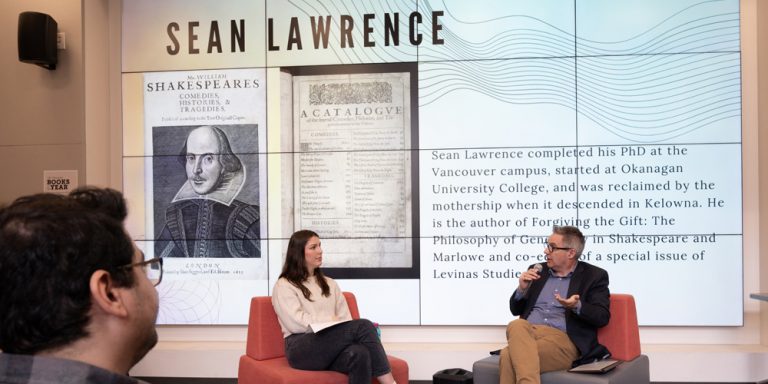
Sean Lawrence and MA English student Jessica Beaudin
Sean Lawrence completed his PhD at the Vancouver campus, started at Okanagan University College, and was reclaimed by the mothership when it descended in Kelowna. He is the author of Forgiving the Gift: The Philosophy of Generosity in Shakespeare and Marlowe and co-editor of a special issue of Levinas Studies.
Jessica Beaudin (pronouns she/her) is a graduate student in the MA English program at the University of British Columbia Okanagan, gratefully working on Syilx territory. Drawing significantly on the field of Critical Animal Studies, her thesis research is interested in the ethical disjuncture at work in the practices of euthanasia, as well as the differential logics of obligation accorded to the putting-to-death of both human and non-human animals.
